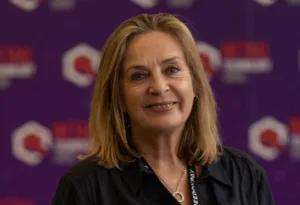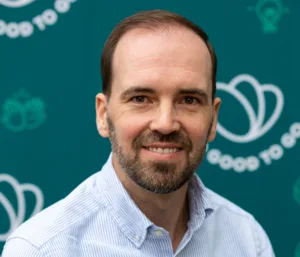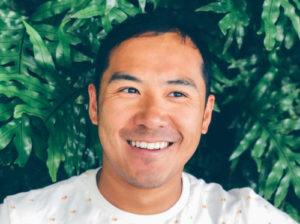In the latest in ECA’s interview series with founders and CEOs of innovative ecommerce brands, we speak to Charlotte Morley, founder & CEO, The Little Loop.
Can you tell us about The Little Loop and the business model?
We are the UK’s first shared wardrobe for kids operating across the UK. We’re rethinking the way we clothe children in order to entirely design out waste. Right now, in the traditional linear model, parents buy clothes for children which are quickly outgrown and often thrown away. In the best case they may be passed on to a charity shop, or handed on informally one or two times. But there are still hideous amounts of waste because the second-hand market is bolted on, and it’s so haphazard which items will be given a second life.
We’ve gone back to the drawing board to look at the best way to optimise clothing, while providing an incredible customer experience which removes all of the effort of accessing clothes and then disposing of them when they’re no longer needed or wanted. Our system enables parents to access a huge shared closet of the best ethical and sustainable children’s clothing brands, and then they can swap them effortlessly for new ones when they’re done.
We’re first and foremost a tech company which means we’ve been able to build a service designed around our customers’ needs rather than expecting them to adapt to what we’re able to provide. For example we allow our customers completely free choice (many clothing rental companies insist on pre-selected bundles), and they can swap some or all of their clothes as often as they like. We also partner with the brands we stock who take a share of the rental revenue meaning they share responsibility for how long those garments last, learn from the data we gather on their durability, and can ultimately move their businesses to become increasingly circular.
What prompted you to set up the business?
I founded thelittleloop in 2020 whilst on maternity leave from my job as Head of Digital Product at Notonthehighstreet. I was horrified by the amount of clothing waste that was generated by my two children but unable to find a convenient, affordable way to dress them which was also planet-friendly.
In particular, I was struck by how every other purported solution out there was working in parallel to the fashion industry – i.e. second hand marketplaces bolted on to a system which was still ultimately linear. I wanted to create something which could change the industry from the inside and knew that with my tech background I was well placed to design something which could be truly transformative both for consumers and clothing businesses.
What experience from your other roles have helped you?
Working in Digital Product is one of the best apprenticeships for setting up a business. It teaches you first-hand two of the most critical skills: 1) understanding the customer problem and working to solve it, rather than designing the solution you think people want to see. And 2) how to build and ship something to test the market before you’ve committed a huge amount of resource, time and effort. And digital product at Notonthehighstreet was particularly relevant for me as I saw firsthand what had gone into setting up an innovative, consumer marketplace, built on technology. There were both good and bad lessons to take from that, both of which I’m grateful for.
How has it gone since launch?
I think it’s fair to say that nothing is as straightforward as you expect it to be. We’ve had such a great reception from within the industry – brands and industry bodies, as well as circular economy organisations have been incredibly enthusiastic and supportive. We’ve won some amazing awards including being named by Natwest as one of the UK’s most extraordinary small businesses, and a Junior Design Award for best childrenswear retailer – both of which were huge for us.
Reaching customers was always going to be more of a challenge. What we’re doing is so new that it takes a lot more to help people understand what we’re doing and what the benefits are for them of taking a leap and trying a different way of doing things. But we’ve continued to focus on building an incredible customer experience in order to reduce the friction of moving to access over ownership, and we’re starting to see that really pay off.
What has been particularly helpful is that those customers we do have are incredibly supportive. The feedback we get from them is resoundingly positive, and in some cases we’ve been told that we’ve changed their lives by offering something so simple and convenient as well as environmentally positive.
What problems have you faced and what elements have you had to adapt?
Managing the two sides of the marketplace is a delicate balance – having enough choice for customers while ensuring our brands aren’t disadvantaged by having too much stock sitting in our stores. It has taken enormous support and belief from our brands and I will always remain grateful to them for that. But as we’re growing that balance is getting better everyday, and we’ve adapted our model to make it even better – we will be introducing resale of rental stock soon to ensure that stock doesn’t stagnate and that brands see a return on every item.
What sort of competition is there in the market?
There’s a real mix. There are some great rental businesses out there, all of which are focusing on slightly different things. And there are some which are popping up and then disappearing pretty quickly which is unsurprising as making rental work is hard – the market is still very undeveloped, there isn’t a huge pool of customers to choose from, and the logistics is such a challenge – you need a huge amount of inventory to ensure that customers have sufficient choice for the service to be appealing.
What is clear is that only a few of them, at this stage, have prioritised technology which means often the customer experience remains compromised to an extent. And none of them are working hand-in-hand with the brands as we are. But I’m sure we’ll see more serious players enter the market over the next year or so, and with the technology we’ve built, which we hope to white label, we may even be able to help them!
You’ve run a pop-up so what about other physical units?
It’s amazing to see people in real life and be able to really understand their feedback, particularly reservations, about renting. Plus there’s so much opportunity for running events which have synergy with the space we’re in – eco-parenting is going from strength-to-strength. So it’s definitely something we’ll keep an eye on. But for now it’s not as big a priority as growing the online business and brand.
What about the future – will there be The Big Loop?
There is definitely potential for an adult rental service which is focused on providing access to everyday, affordable items rather than high-end, designer fashion and occasionwear. But there are others out there who are doing a great job and for now we’re happy to see where they take that. But never say never.









